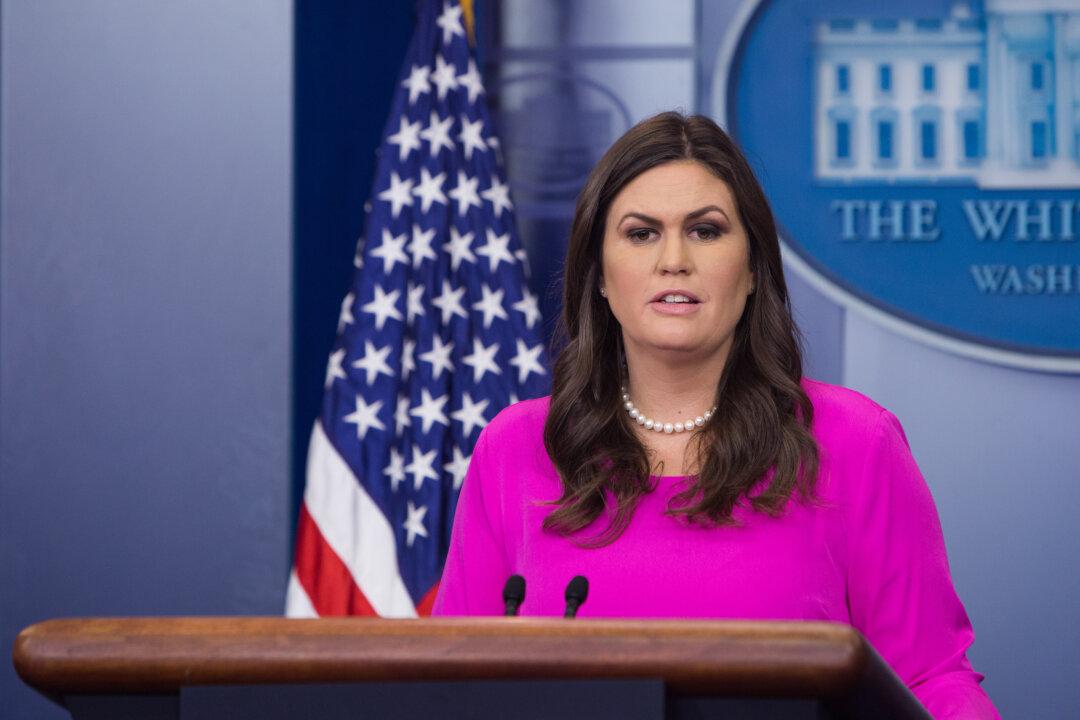WASHINGTON—Press Secretary Sarah Sanders said on Monday that indictments made by a special counsel have nothing to do with the White House.
The special counsel Robert Mueller announced on Monday that it had made three indictments.


WASHINGTON—Press Secretary Sarah Sanders said on Monday that indictments made by a special counsel have nothing to do with the White House.
The special counsel Robert Mueller announced on Monday that it had made three indictments.